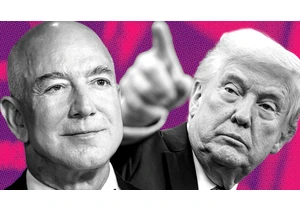Digital health company Hims & Hers is starting to roll out a new holistic weight loss program—one that doesn’t include Ozempic for the time being.
Instead of offering buzzy weight loss injectables, the company is focusing on less-expensive and often widely available generic medications including Bupropion, Metformin, Naltrexone, and Topiramate with Vitamin B12, which have helped with weight loss.
The new program, which is expected to be fully launched by January, also includes educational content as well as tracking features that monitor sleep, hydration, and movement. The digital health platform will start consumers off with a questionnaire to analyze their eating habits. Maybe someone is an anxious eater or they are a foodie. The company then will share content developed by psychologists based on where a person falls into the categories.

It’s all part of the “four pillars” of weight management, says Dr. Craig Primack, who joined the company as senior vice president of weight management. In order to have success, there has to be nutrition changes, activity, behavior modification, and medication.
The bias and stigma around weight is overwhelming, and the hope for this product echoes the early days of Hims. Similar to how the company was founded on the basis that men would feel more comfortable talking about sexual health over a digital platform, consumers may feel less judged in a telemedicine format when talking about weight, Primack says. It also helps with accessibility.

“The reality is actually there are great treatments and there are specialists who know how to use combinations of treatments and combinations of eating dynamics or eating habits and cognitive behavioral therapy, content, etc. to lose weight and keep it off,” CEO Andrew Dudum tells Fast Company. “But historically, very few people had access to that.”
The Hims & Hers weight-loss program comes when consumer interest in shedding pounds seems almost higher than ever, thanks to the rise in popularity of injectables. Dudum doesn’t believe that consumers will go straight to competitors and avoid choosing Hims since it isn’t yet offering Ozempic. Rather, he says the field is finally being properly acknowledged and made accessible because of the new drugs. In an early rollout, he says, demand is “way more than we expected.”

“People are searching out all of the options,” Dudum says. “There’s a huge energy around learning about options and we’re seeing that in our numbers.”
To be sure, GLP-1 agonists, including Ozempic or Wegovy, will eventually make their way onto the digital health platform, Dudum says, but only “when there is a really high quality understanding of their supply chains, when and how they should be used.”
“We’re just in the early days of those medicines, and of having solid answers on those,” he continues. “And so I think we’re just being a little bit more prudent.”
Autentifică-te pentru a adăuga comentarii
Alte posturi din acest grup

Consumers are only just starting to feel pain from Trump’s Liberation Day tariff spree. Amazon

When Donald Trump returned to the White House in 2025, many in the tech world hoped his promises to champion artificial intelligence and cut regulation would outweigh the risks of his famously vol

The first 27 satellites for Amazon’s Kuiper broadband internet constellation were launched into space from Florid

There are so many ways to die. You could fall off a cliff. A monk could light you on fire. A bat the size of a yacht could kick your head in. You’ve only just begun the game, and yet here you are,

Former Tinder CEO Renate Nyborg launched Meeno less than two years ago with the intention of it being an AI chatbot that help

The most indelible image from Donald Trump’s inauguration in January is not the image of the president taking the oath of office without his hand on the Bible. It is not the image of the First Lad

Ernest Hemingway had an influential theory about fiction that might explain a lot about a p
